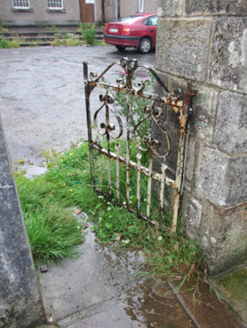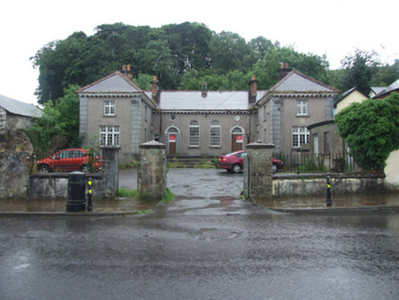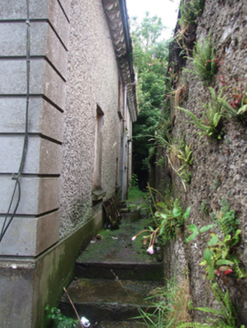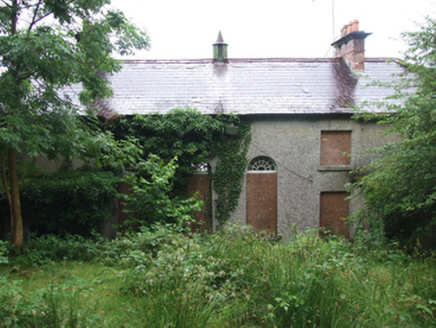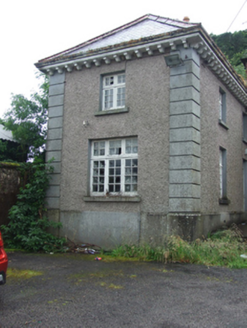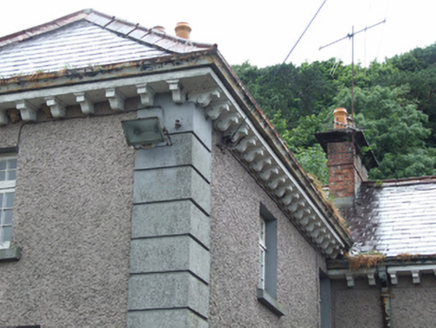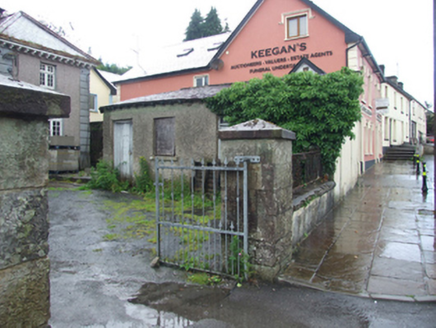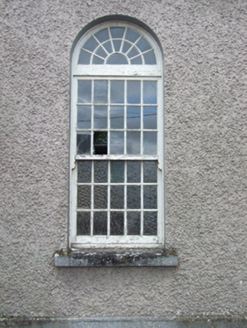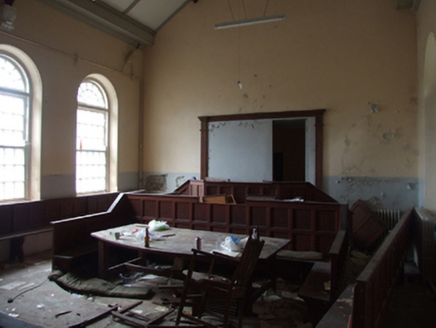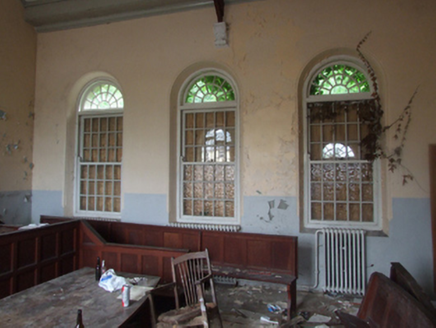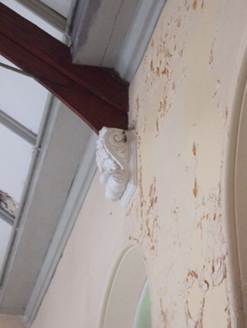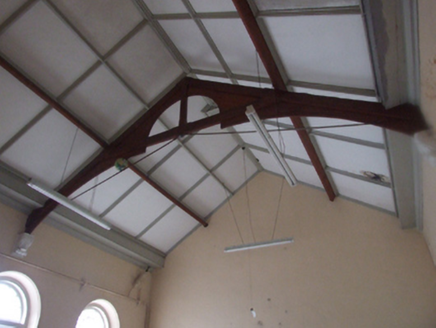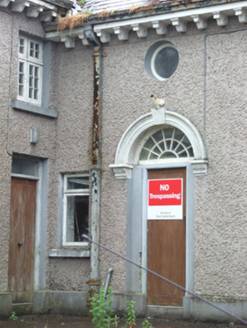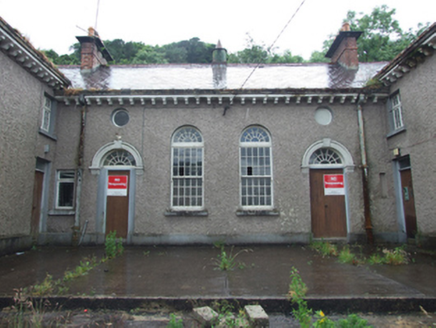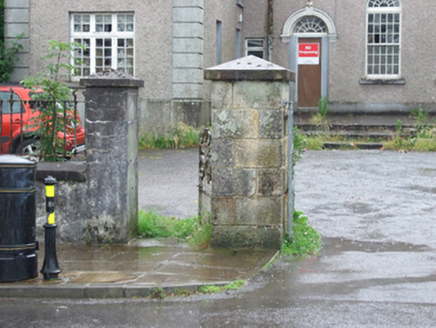Survey Data
Reg No
40400504
Rating
Regional
Categories of Special Interest
Architectural, Historical, Social
Original Use
Garda station/constabulary barracks
Date
1920 - 1940
Coordinates
199016, 326798
Date Recorded
18/07/2012
Date Updated
--/--/--
Description
Detached U-plan six-bay two-storey courthouse, built c.1930, having four-bay recessed central section. Single-storey three-bay extension to north-east and two single-bay single-storey extensions to west. Formerly also in use as Garda Station, now disused. Hipped slate roof with roll-mould clay ridge tiles, cast-iron rainwater goods on over-sailing eaves supported on decorative modillions. Metal-clad ventilator with conical top to centre of ridge flanked by red brick chimneystacks with brick banding, stone cappings, and clay pots. Flat roof to extensions. Wet dash finish with raised smooth-rendered plinth course and channel-jointed quoins. Round-headed timber sash windows with fixed timber fanlights flanked by round-headed entrance doors with oculi above to recessed central section. Moulded archivolts to entrances on corbel stones at impost level with key stones, original timber fanlights and recent timber boarded doors. Multiple paned casement windows to ends of advanced wings at upper level over tripartite multiple paned timber casement windows. Square-headed window and door openings to inner sides of wings with multiple paned cross-casement windows and recent timber doors having single-pane over-lights. Interior courtroom having compartmented plaster ceiling with single timber truss to centre on scrolled acanthus corbelstones. Timber surround to judge’s entry door. Timber panelled benches to gallery with raised timber panelled bench for judge and clerk. Set back from streetline behind wrought-iron railings on rendered plinth walls, with central ashlar sandstone piers having cut-stone capstones and recent steel gates, with forged-iron pedestrian gate with rendered pier to side.
Appraisal
The court house was built soon after Independence to serve the county Cavan side of a district which had been truncated by its proximity with Northern Ireland. It is of historical importance, having been built as a direct consequence of Partition. Originally it also contained a Garda Station that was intended to serve the border. The building is set apart from the majority of Irish court houses, which typically date from the first half of the nineteenth century. It is a central presence in Dowra, with its distinctive classical style and symmetrical layout making it the key building in the main street. The retention of historic features such as the windows, eaves brackets, chimneystacks, and interior fittings add to its character.
